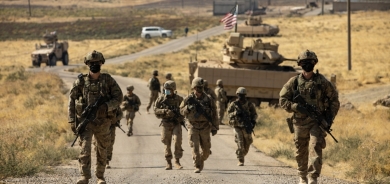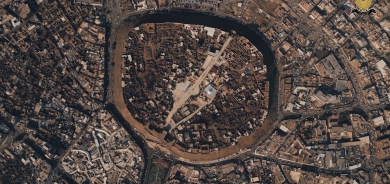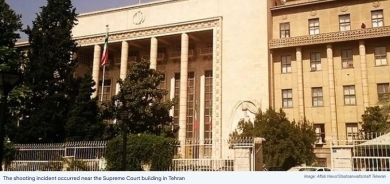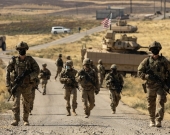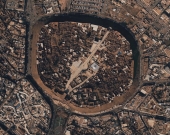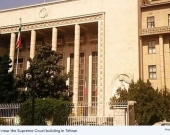Kurdish Youth May Have Been Recruited at Mosques for Syrian ‘Jihad’

Security officials, particularly in Sulaimani province, recently reported that around 150 young Kurds had traveled across the border to Syria to fight against the embattled regime of Bashar Assad. This month, security forces also carried out night raids on several mosques in Sulaimani to check out suspicions they were being used for recruitment.
Mariwan Naqshbandy, the spokesperson for the Ministry of Religious Affairs in Erbil, believes that part of the reason youth are attracted by the war next door is the way anti-Assad fighters have been glorified in the media.
“Some of the Arab media portrayed those who fight the Assad regime as heroes,” Naqshbandy told Rudaw in a recent interview. “So that influenced our young at the start of the Syrian conflict.”
According to Naqshbandy, most of the young Kurds who have gone to Syria are between the ages of 16 and 25. Authorities say that 10 of the estimated 150 who have gone have been killed in the fighting.
“The parents of 90 percent of those who have gone to Syria are unaware” about the whereabouts of their children, he said. “At this age, one view or one person can easily influence a young person.”
The Kurdish military and security officials usually keep tight control of their borders, especially with Syria and Iraq, to prevent a spillover of the conflict into their stable region. They also stop anyone from leaving the region to join extremist groups in places like Syria.
Kurdish political parties, including Islamic ones, have not endorsed the so-called “jihad” in Syria, Naqshbandy noted.
“Parties have officially declared that they are against the youth going to Syria, and that the reasoning behind going there for jihad is wrong,” he said.
Security forces in Sulaimani reported earlier this month that, in raids at several mosques, they had seized laptops and incriminating evidence of Islamic students and clerics recruiting youth for the Syrian war.
Naqshbandy rejected claims that mosques in Kurdistan have served as recruitment centers and said he supports the security forces in stopping any such activity. He said that authorities had been respectful in the way they had carried out the searches at Sulaimani mosques this month.
“If the documents that they have sent to us from Sulaimani security are true and were indeed taken from laptops from the mosques, then it’s quite dangerous and we need to investigate accurately,” Naqshbandy said.
Naqshbandy said that Kurdistan clerics have refused to endorse the war in Syria as a jihad and have done their best to discourage people from going there to fight. In the meantime, it is not easy to control every meeting and conversation that takes place inside Kurdistan’s 5,000 mosques, he explained.
“Because the mosques are public places in Kurdistan and everyone goes there freely without any obstacles, they are the best places for the young to meet and talk,” he said. “But you cannot watch everyone during prayers, and the mosques are not controlled by surveillance cameras as in other Islamic countries.”
RUDAW


